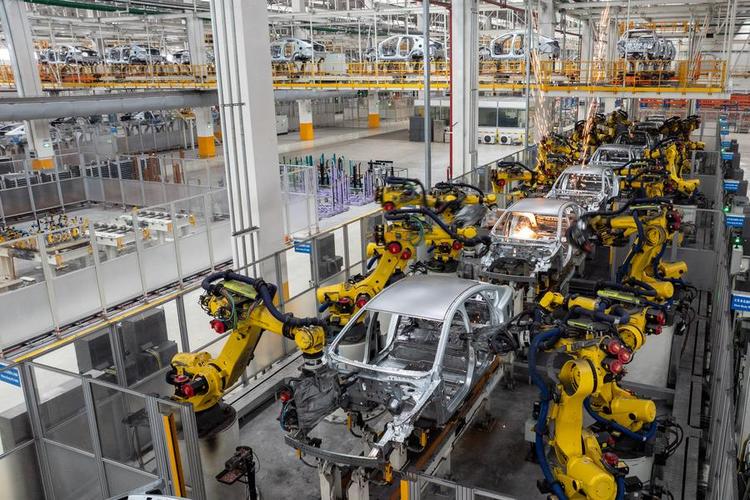 Bridging News
Bridging News
China's NEV Annual Production Hits 10 Million Amid Global Carbon Reduction Efforts
Wuhan - China's annual production of new energy vehicles (NEVs) surpassed the 10 million milestone for the first time on Thursday, in an accelerated drive toward a greener future.
At a ceremony held in Wuhan, central China's Hubei Province, a pink Voyah Zhiyin new energy SUV rolled off the production line, while videos showing NEVs from various companies being churned out were also played, marking the new achievement of China's auto industry. The event was attended by representatives from Chinese carmakers such as FAW, Dongfeng, Chery and BYD.
Analysts believe it to be a historic moment, not only for the transformation of the country's automotive industry, but also for the global shift toward green transportation.
"Developing the new energy industry and advancing green, low-carbon transitions are shared goals for countries worldwide," said Xin Guobin, vice minister of the Ministry of Industry and Information Technology, noting that NEVs play a crucial role in global efforts to combat climate change and protect the environment.
The achievement is a milestone for China's auto industry and a testament to China's expanding contribution to global green development and carbon reduction, said Fu Bingfeng, executive vice president and secretary-general of the China Association of Automobile Manufacturers (CAAM).
According to official data, the NEV market share in China was just above 1 percent in 2015 but has since surged thanks to an expedited green transition of the Chinese economy.
In July this year, NEVs made history by surpassing fuel-powered vehicles for the first time in terms of market share, with retail sales nationwide hitting 878,000 units -- accounting for 51.1 percent of the domestic market.
Promoting a green shift in the auto industry is the trend going forward. China's development of the NEV industry is aligned with the growing demand in the global automotive market.

This photo taken on March 21, 2024 shows a production line of BYD, China's leading new energy vehicle (NEV) manufacturer, in Changsha, central China's Hunan Province. (Photo/Chen Sihan, Xinhua)
A report of the International Energy Agency showed that electric cars -- referring to both battery electric and plug-in hybrid cars -- accounted for around 18 percent of all cars sold worldwide in 2023, up from 14 percent in 2022 and only 2 percent in 2018. "These trends indicate that growth remains robust as electric car markets mature," the report said.
Notably, China's NEV industry mainly caters to the domestic market and the country's NEV exports constitute only a small portion of its total production. While approximately 9.59 million NEVs were manufactured in the country last year, only about 12 percent of them were exported.
According to data from the CAAM, China's domestic sales of NEVs reached 8.692 million units in the first 10 months of this year, which is more than eight times the export volume of NEVs during the same period. The domestic sales volume saw a year-on-year increase of 38.3 percent, with a growth rate over 30 percentage points higher than that of exports.
"China's active development of new energy vehicles is primarily driven by the increasing demand from domestic consumers. From the perspective of sales structure, the focus is on domestic sales, and the proportion of exports is not high," said Bai Ming, a researcher with the Chinese Academy of International Trade and Economic Cooperation under the Ministry of Commerce.
In recent years, international car companies such as Tesla, BMW and Toyota have all been actively expanding their production of NEVs in China.
For example, Toyota has established one of its largest overseas testing and R&D centers in Changshu, east China's Jiangsu Province, and recently opened an advanced technology research center in Shanghai. Tesla broke ground in May on a mega factory in Shanghai to manufacture its energy-storage battery Megapacks.
"China has always maintained an open and cooperative attitude, promoting closer industrial cooperation between domestic and foreign automotive companies and sharing the opportunities for development in the NEV industry," said Bai Ming.
Amid a new round of technological and industrial revolution, the global auto industry is witnessing drastic changes in such areas as technology, products, business models and ecosystems.
To promote high-quality development of the NEV industry, it is crucial to strengthen exchanges and cooperation with enterprises from various countries, Xin Guobin said, calling for collaborative efforts in key technological research and development.
 Related Stories
Related Stories